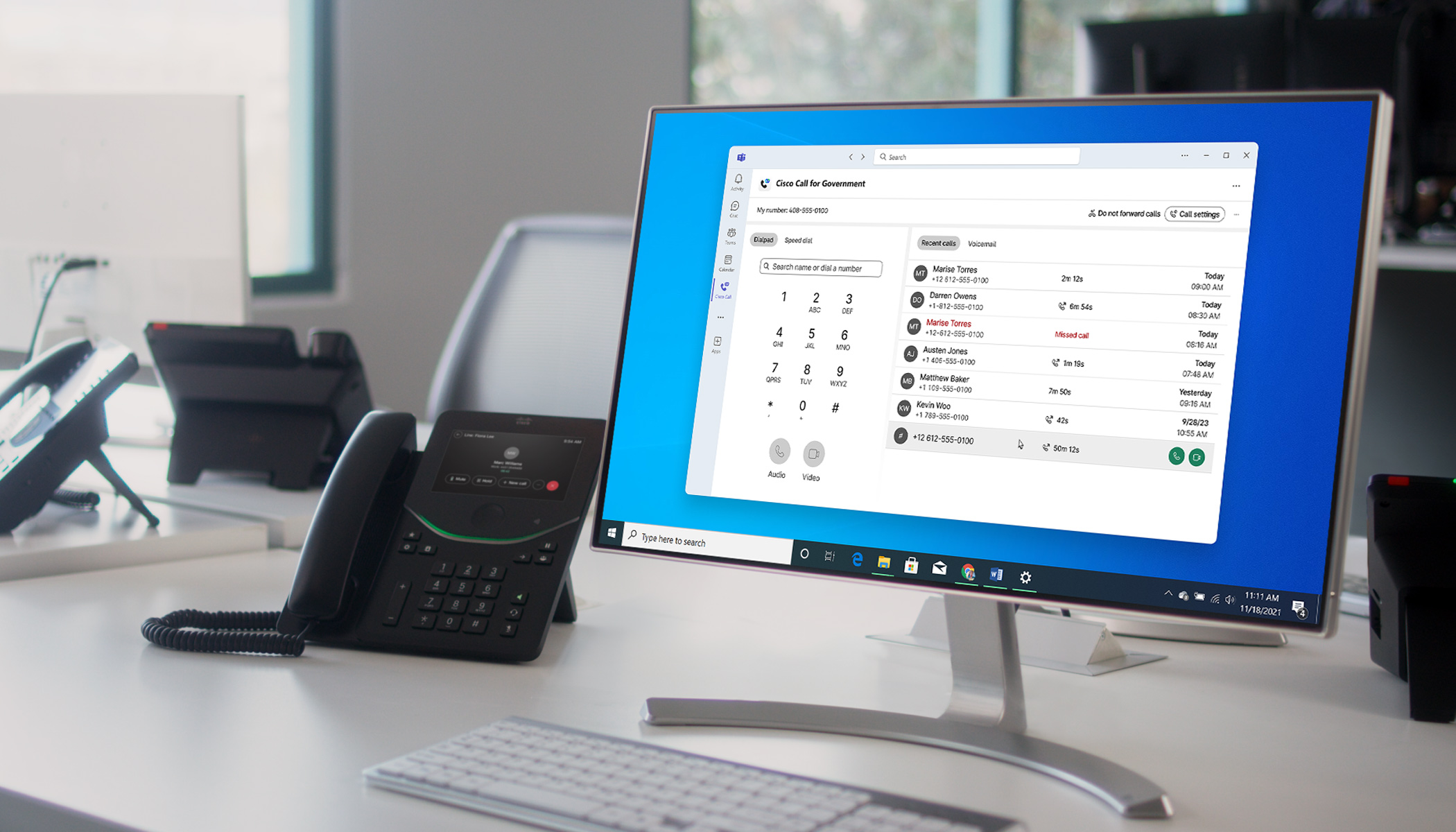Cloud calling lets small business employees collaborate across platforms, customers reach you across channels—and you focus on your business.
As your company considers how to adapt to the new hybrid work reality, you’re likely looking at upgrading your current on-premises phone system to cloud calling to not only support hybrid work but also to give all employees the best communication and collaboration tools possible—no matter where they work.
Recent data from Techaisle shows that 58% of employees expect to work in hybrid environments and 93% of your small business peers are prioritizing hybrid workplace technology adoption. That means small businesses like yours need to adapt to the evolving workplace with easy-to-use technology that provides the calling, meeting, messaging, and collaboration capabilities employees need.
Your business needs an innovative, flexible, and collaborative calling solution that you don’t have to spend a lot of time or money installing, maintaining, or training staff to use. Your small business needs cloud calling.
How cloud calling supports hybrid work
Remote work existed pre-COVID and flourished out of necessity during the pandemic. Now hybrid work is poised to become the de facto model for modern businesses.

According to PwC’s US Remote Work Survey, nearly three-fourths (73%) of more than 1,000 full- and part-time employees report that their workplaces are supporting in-person, hybrid, and full remote staff. That means the immediate and reactive response to remote work put in place during the pandemic needs to be re-addressed as part of a long-term hybrid work strategy to enable productive, collaborative, remote work as part of the larger workforce.
In our experience at Webex, small businesses that embrace cloud calling realize these three benefits:
1. Flexibility
With a cloud calling deployment, small business employees can connect and collaborate from headquarters, a remote office, their home, or a hotel all the same way. It’s easy for end users to connect with colleagues, and they can easily switch from a quick call to a video meeting—all with access to shared applications for friction-free collaboration.
2. Security
Maintaining secure connections is tantamount to any successful collaboration and communications platform. Now consider securing employees working from different scenarios—in office, remote, hybrid, on the road, or from a mobile device. The best approach is a unified system that provides the same level of security regardless of the platform. Cloud calling will apply standards-based, Zero-Trust secure end-to-end encryption and secure identity management for calls, meetings, and connections across applications, devices, and platforms.
3. Resiliency
Cloud calling can offer small businesses resiliency, meaning not only is the platform reliable, but it also enables the business to quickly adapt to unforeseen disruptions while maintaining operations and safeguarding people, assets, and resources. With cloud calling, your small business can enjoy the benefits of carrier-grade infrastructure with the ease of cloud services.
Remove small business barriers, move to the cloud
On-premises phone systems are outdated. And many cannot be updated without significant investments in money, time, and IT resources. You cannot afford to invest more in old-school systems that do not take advantage of cloud computing. Your small business can no longer tolerate the limitations on-prem phone systems represent, such as:
- Cost: Equipment, installation, and ongoing upgrades represent significant expenses.
- Maintenance: Keeping systems up to date requires money but often also dedicated staff to perform updates.
- Inflexibility: Integration with other collaboration tools isn’t seamless and could represent challenges.
- Slow (or no) innovation cycles: Many equipment vendors are slow to update systems, leaving customers with outdated tools.
- Product end of life: Other vendors have announced plans to no longer support on-prem phone systems.
- Disruptive upgrades: If there is support, upgrading existing phone systems can mean business downtime.
Cloud calling fixes the on-prem problem
Cloud calling solves the challenges on-premises phone systems represent—and so much more. The right cloud calling solution for your business will enable employees to connect and collaborate from anywhere with ease. It will let them meet, chat, or call from any device without worrying about technology integrations or even complicated instructions. With the push of a button, a call can become a meeting or can transfer to another device—and employees will not miss a beat.

Techaisle research shows that within one year, 62% of SMBs will adopt an integrated platform that supports telephony, meetings (audio/video/web conferencing), unified messaging, IM and presence, mobility, and communications-enabled business processes. Here are just a few of the reasons small businesses are embracing cloud calling.
- It powers hybrid work. Cloud calling provides one system for in-office and remote workers, reduces reliance on on-prem phone systems, and utilizes employee devices for calls, meetings, and more.
- It better supports customers. Cloud calling offers advanced features such as automated attendant, voice mail, and more. It also powers always available systems that can connect with customers at any time or location.
- It reduces maintenance requirements for on-site staff. With cloud calling, software updates are delivered via the cloud so there is no need for onsite staff to maintain physical systems.
- It lets your small business achieve cost predictability. Cloud calling removes unexpected expenses with a predictable monthly subscription, and it reduces the need to buy new equipment to support new users.
As the world works toward economic recovery, business leaders want to reduce risk, embrace flexibility, improve productivity, and enable uninterrupted connections for their employees. Cloud calling can address all of the above while helping build a more agile, resilient business that can thrive during even the most uncertain times.
How to get started with cloud calling
Putting a cloud calling system in place will not require an extensive upfront investment or overhaul of existing operations.
Businesses with PBX systems can try cloud calling while integrating with and maintaining the on-premises infrastructure, scaling the cloud deployment as incremental success is achieved. Migrating to the cloud does not require any disruption in business operations or services, meaning you can equip your business to be more flexible, secure, and resilient without slowing productivity.
If cloud seems like a better alternative to your current calling system, it’s time to consider Webex Calling.
Related resources




